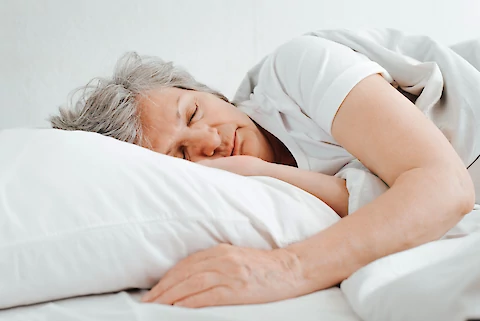
As we age, several changes take place within our bodies. One of these changes relates to our sleep patterns. It's not uncommon for seniors to experience different sleep challenges, such as fragmented sleep or insomnia. But why does this happen and what can we do about it?
Senior Helpers Auburn Hills will delve into the fascinating science of sleep, exploring why our sleep patterns change as we grow older and how we can adapt to these changes to improve sleep quality. Understanding these changes is not only crucial for comprehending what is happening but also for coming up with effective solutions.
The Science of Sleep
Sleep is a fundamental biological process that is important to our health and well-being. It's during sleep that our body repairs itself, our brain consolidates memory, and our immune system gets strengthened.
In a typical sleep cycle, we alternate between two stages: rapid eye movement (REM) sleep, where dreaming occurs, and non-REM sleep, divided into three phases of progressing depth. As we age, the balance and length of these stages can change, often resulting in seniors spending less time in the deep, restful phases of sleep.
Changes in Sleep Patterns With Age
The National Sleep Foundation notes that adults need seven to nine hours of sleep per night. For seniors, however, achieving this might not be as straightforward. With age, many people begin to experience fragmented sleep, making it harder to reach the deeper phases of non-REM sleep. This fragmentation often results in waking up more frequently during the night and having a harder time falling back asleep—a common cause of sleep disruption known as insomnia.
Other sleep disorders such as sleep apnea and restless legs syndrome also become more common with age, further impacting the quality and quantity of sleep that seniors get. Since these sleep issues can contribute to other health problems, understanding and addressing them is of utmost importance.
Practical Tips to Adjust to Changes in Sleep Patterns
Adjusting to these changes might seem challenging, but there are several practical steps you can take. First, maintaining a regular sleep schedule can help regulate your internal body clock, making it easier to fall asleep and wake up. Establishing a relaxing pre-sleep routine, like reading a book or taking a warm bath, can signal your body that it's time to wind down and prepare for sleep.
Consider your sleep environment as well. A bedroom that is dark, quiet, and cool can greatly improve the quality of your sleep. Limiting exposure to screens before bed and reducing caffeine and alcohol intake can also make a significant difference.
In some cases, medical intervention might be necessary. Cognitive behavioral therapy for insomnia (CBT-I), for example, can be effective in treating chronic sleep problems. A healthcare professional can provide personalized advice based on individual needs.
Contact Senior Helpers for Assistance With Healthy Sleep
Changes in sleep patterns are common with age. These changes can present challenges, but with understanding and adaptation, it's possible to maintain good sleep quality and overall health. With the right information and support, seniors can navigate these changes and enjoy a good night's rest.
If you're facing issues with sleep or are caring for someone who is, don't hesitate to reach out to us at Senior Helpers Auburn Hills. Our team of experienced care professionals is ready to provide the necessary support, whether it's aiding in establishing healthier sleep routines or providing overnight care to ensure safety. Please contact us to learn more about the services we provide for individuals in and around the Bloomfield Hills, Pontiac, and Oakland County areas.